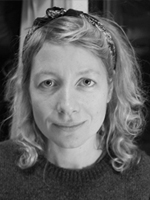Lena Dreier

Areas of interest
- Sociology of Knowledge and Religion
- Qualitative Methods and Qualitative Longitudinal Approaches
- Higher Educational Studies
- Islamic Education
Students’ belief within the institutionalisation of Islamic theology. Relationships and distinctions between religiosity and theology in a new academic discipline in Germany
Theology of any kind has to question the boundaries, differentiations, and intersections between belief, religious knowledge and theological knowledge. This has presented particular challenges when establishing Islamic theology as an academic discipline, or where academic imam training has been associated with the political agenda of promoting a so-called democratic version of Islam, as is the case in many European countries.
Islamic theology was established as an academic discipline in Germany in 2010 as part of a broader effort to incorporate Islam into German cultural and educational institutions. The establishment of the academic discipline was accompanied by political discourse on security and state control. A key political expectation was that this new Islamic theology would be used in training imams. Today, it is still unclear whether mosques will engage Islamic theology graduates as imams, social workers, and other professionals. The lack of long-term legal arrangements between religious organisations and academic institutions is a source of uncertainty for students and teachers of the discipline alike. Despite these uncertainties, many are opting to study Islamic theology, often starting their studies with personal conceptions of religion, and sometimes with the aim of deepening their personal beliefs through study.
Academic research on religion distinguishes between studying from an insider’s (believer’s) perspective and studying from an outsider’s perspective. The insider’s perspective involves a distinct, potentially religious, theological position. At the same time, academics and institutions in the field of Islamic theology also seek to legitimise their academic status by drawing distinctions between their own academic positions and purely religious stances. As such, religion plays a role in constructing theology and is also used to draw boundaries and distinctions. This is also the case for the students’ religiosity or religious subjectivity: their personal conceptions of religion are part of the way the institution associates with, dissociates from, and generally processes religion.
This research project aims to examine the role of student religiosity and how personal beliefs are part of establishing and constructing the new discipline of Islamic theology at universities. It will analyse how a student’s religion is constructed and connected to other forms of knowledge and belief. It will also analyse how a student’s religion develops during the study of Islamic theology. The research is driven by the following questions: What personal religious conceptions are students starting with and how do these develop as they study Islamic theology? What kind of impact do differentiations and distinctions have on the students’ personal beliefs in terms of theology and religion, and of religion and non-religion? Which links between religiosity and theological knowledge can be found in this new theology? To answer these questions, the research project employs a multi-sited qualitative approach, combining biographical research, expert interviews, and ethnographic methods.
The project approach is rooted in and builds upon the sociology of knowledge. The project will investigate how religiosity is constructed and reconstructed in the course of a student’s studies, and thereby examine which aspects of religiosity are connected to the process of institutionalising theology, and, more broadly, how dimensions of subjectivity are institutionalised (in the sense of Schütz/Luckmann) and differentiated in processes of institutionalisation.
Biography
Visiting Scholar, Department of Cross-Cultural and Regional Studies, University of Copenhagen
PhD Candidate, with a Fellowship by the Friedrich Ebert Stiftung, Institute for the Study of Culture, Leipzig University
Lecturer, Institute for the Study of Culture, Leipzig University
Research Associate, DFG-funded Project ‘Distinctions in the German Gymnasium? Processes of Creating Habitus in Exclusive Secondary Schools’, Research Unit Mechanisms of Elite Formation in the German Educational System“, Martin Luther University Halle-Wittenberg
M.A., Cultural Studies and Sociology, Leipzig University
Relevant Publications
- Dreier, Lena. "Religiosität und Sinnzuschreibungen über die Zeit. Methodische und methodologische Implikationen des biographischen Paneldesigns." In Qualitative Längsschnittforschung. Bestimmungen, Forschungspraxis und Reflexionen. Edited by: Sven Thiersch. Leverkusen: Barbara Budrich, 2020.
- Dreier, Lena. "Biographische Formen des Religiösen. Lebensgeschichtliche Erzählungen aus qualitativ-längsschnittlicher Perspektive." Religion soziologisch denken. Reflexionen auf aktuelle Entwicklungen in Theorie und Empirie. Edited by In Heidemarie Winkel und Kornelia Sammet (Veröffentlichungen der Sektion Religionssoziologie der Deutschen Gesellschaft für Soziologie, 2017.


